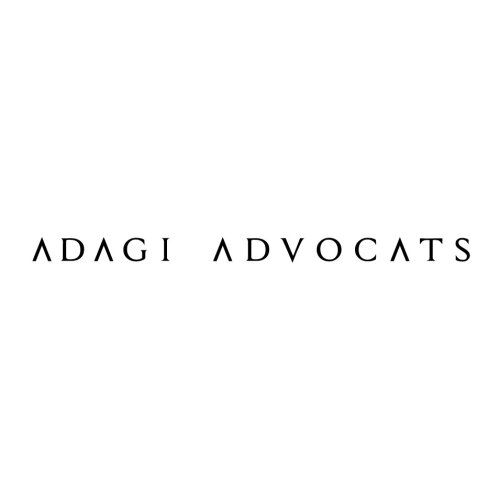Best Tax Lawyers in Andorra
Share your needs with us, get contacted by law firms.
Free. Takes 2 min.
Or refine your search by selecting a city:
List of the best lawyers in Andorra
About Tax Law in Andorra
Tax law in Andorra has evolved significantly over recent years as the country has worked to align itself with international standards. Historically considered a tax haven, Andorra now offers a transparent and competitive tax system. The country has implemented a personal income tax, corporate income tax, and value-added tax (VAT), among others. With tax rates generally lower than many neighboring countries, Andorra attracts residents and businesses seeking tax efficiency. However, given its unique tax regulations and ongoing reforms, professional guidance is important to navigate the nuances of the Andorran tax system.
Why You May Need a Lawyer
There are several situations where you might need a lawyer specializing in tax law in Andorra:
- Business Formation: Understanding the tax implications of starting a business in Andorra and ensuring compliance with local laws.
- Tax Residency: Determining tax residency status and the associated obligations.
- Investment and Wealth Management: Guidance on tax-efficient investment and financial strategies.
- Dispute Resolution: Handling disputes or litigation related to taxation with the government.
- International Taxation: Managing cross-border tax issues and compliance with both Andorran and foreign tax laws.
Local Laws Overview
The key aspects of tax laws in Andorra that are particularly relevant include:
- Personal Income Tax: Introduced in 2015, with progressive rates ranging up to 10%.
- Corporate Income Tax: Generally set at a maximum of 10%, with some exemptions and deductions available for businesses.
- Value Added Tax (VAT): Known locally as IGI (Imposto General Indirect), the standard rate is 4.5%, which is considerably lower than in many European countries.
- Tax Treaties: Andorra has signed double taxation agreements (DTAs) with several countries to avoid tax overlap and foster economic cooperation.
- Tax Compliance: Regulations require timely filing and payment of taxes to avoid penalties or legal issues.
Frequently Asked Questions
What is the tax rate for individuals in Andorra?
Individuals are subject to a progressive income tax rate, with the maximum rate being 10% for income above a certain threshold.
Are there any tax incentives for businesses?
Yes, certain corporations may qualify for reduced corporate tax rates depending on the nature and scope of their business activities.
How is tax residency determined in Andorra?
Tax residency is typically determined by spending more than 183 days within a calendar year in Andorra or having the center of economic interests within the country.
Does Andorra have double taxation agreements?
Yes, Andorra has established tax treaties with several countries to help avoid double taxation and encourage economic collaboration.
What is IGI, and how does it differ from VAT?
IGI, or Imposto General Indirect, is Andorra's equivalent of a VAT, with a standard rate of 4.5%.
How are international investments taxed in Andorra?
Taxation of international investments varies based on factors such as residency status and applicable double taxation agreements.
What penalties exist for non-compliance with tax laws in Andorra?
Penalties for non-compliance can include fines, interest on overdue taxes, and in severe cases, legal action.
Can foreign companies benefit from Andorra’s tax system?
Foreign companies can benefit from Andorra's favorable tax rates; however, they must comply with local regulations and potentially different taxation treaties.
How does VAT relief work in Andorra for businesses?
Businesses may claim VAT relief on goods and services that qualify under the specific provisions of IGI law.
Are there any specific taxes for non-residents?
Non-residents may be subject to withholding taxes on income earned within Andorra and should review the relevant tax treaties.
Additional Resources
For further assistance, consider the following resources:
- The Andorran Government's Tax Department: This department offers guidance and regulations regarding taxes.
- Professional Tax Advisors: Consult certified tax professionals familiar with Andorran laws.
- Embassies and Consulates: These can provide information on international tax treaties and agreements.
- Legal and Business Associations: Local business networks may offer workshops and seminars on tax compliance.
Next Steps
If you require legal assistance in tax matters, consider taking the following steps:
- Identify Your Needs: Clearly outline your tax issues or questions to understand the specific assistance you require.
- Seek Referrals: Ask business associates or local contacts for recommendations of trustworthy tax attorneys or advisors.
- Contact Legal Professionals: Arrange consultations with one or more legal professionals to discuss your situation.
- Review Credentials: Verify the qualifications and experience of any lawyer or advisor you consider hiring.
- Understand Costs: Discuss fees and billing structures upfront to avoid any surprises.
By following these steps, you can ensure that you navigate the tax laws in Andorra effectively, with professional guidance tailored to your needs.
Lawzana helps you find the best lawyers and law firms in Andorra through a curated and pre-screened list of qualified legal professionals. Our platform offers rankings and detailed profiles of attorneys and law firms, allowing you to compare based on practice areas, including Tax, experience, and client feedback.
Each profile includes a description of the firm's areas of practice, client reviews, team members and partners, year of establishment, spoken languages, office locations, contact information, social media presence, and any published articles or resources. Most firms on our platform speak English and are experienced in both local and international legal matters.
Get a quote from top-rated law firms in Andorra — quickly, securely, and without unnecessary hassle.
Disclaimer:
The information provided on this page is for general informational purposes only and does not constitute legal advice. While we strive to ensure the accuracy and relevance of the content, legal information may change over time, and interpretations of the law can vary. You should always consult with a qualified legal professional for advice specific to your situation.
We disclaim all liability for actions taken or not taken based on the content of this page. If you believe any information is incorrect or outdated, please contact us, and we will review and update it where appropriate.
Browse tax law firms by city in Andorra
Refine your search by selecting a city.

















